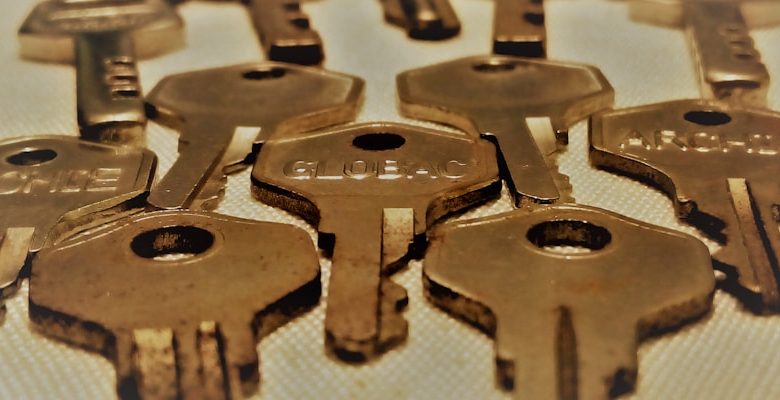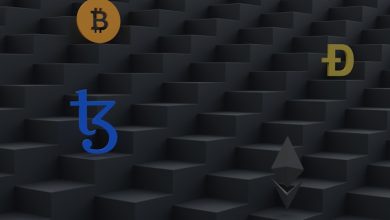The Role of Tokenization in Unlocking New Asset Classes

- The evolution of tokenization in finance
- Exploring the potential of tokenization in unlocking new asset classes
- How tokenization is revolutionizing the investment landscape
- Tokenization: a game-changer for diversifying investment portfolios
- The rise of tokenization platforms for accessing new asset classes
- Tokenization: bridging the gap between traditional and alternative investments
The evolution of tokenization in finance
Tokenization in finance has evolved significantly over the years, revolutionizing the way assets are bought, sold, and traded. Initially, tokenization was mainly associated with cryptocurrencies such as Bitcoin and Ethereum. However, with advancements in blockchain technology, tokenization has expanded to include a wide range of traditional assets such as real estate, fine art, and even commodities.
One of the key benefits of tokenization in finance is the increased liquidity it provides for traditionally illiquid assets. By representing assets as digital tokens on a blockchain, investors can trade these tokens on secondary markets easily and efficiently. This increased liquidity opens up new opportunities for investors to diversify their portfolios and access asset classes that were previously out of reach.
Another important aspect of tokenization in finance is the potential for fractional ownership. Through tokenization, investors can purchase fractions of high-value assets, allowing for greater accessibility and affordability. This democratization of asset ownership has the potential to open up investment opportunities to a broader range of individuals, not just high-net-worth individuals.
Furthermore, tokenization in finance has the potential to streamline the process of asset transfer and settlement. By using smart contracts on a blockchain, transactions can be automated, reducing the need for intermediaries and minimizing the risk of errors. This increased efficiency can lead to cost savings for investors and issuers alike.
Overall, the evolution of tokenization in finance has the potential to unlock new asset classes and democratize investment opportunities. As blockchain technology continues to advance, we can expect to see even more innovative uses of tokenization in the financial industry.
Exploring the potential of tokenization in unlocking new asset classes
Exploring the potential of tokenization in unlocking new asset classes has become a hot topic in the financial industry. Tokenization refers to the process of converting real-world assets into digital tokens on a blockchain. This innovative technology has the potential to revolutionize the way traditional assets are bought, sold, and traded.
By tokenizing assets, investors can gain access to a wider range of investment opportunities that were previously unavailable to them. This includes assets such as real estate, fine art, commodities, and even intellectual property. Tokenization also allows for fractional ownership, meaning that investors can buy and trade smaller portions of assets, making it more accessible to a broader range of investors.
Furthermore, tokenization can increase liquidity in traditionally illiquid markets. By tokenizing assets, investors can trade them on secondary markets 24/7, without the need for intermediaries. This can lead to more efficient price discovery and lower transaction costs, benefiting both investors and asset issuers.
How tokenization is revolutionizing the investment landscape
Tokenization is a groundbreaking technology that is transforming the investment landscape by digitizing assets and unlocking new opportunities for investors. Through tokenization, traditional assets such as real estate, art, and even stocks can be converted into digital tokens that can be easily bought, sold, and traded on blockchain platforms.
This innovative approach to investing offers several key benefits. First, tokenization allows for fractional ownership, meaning that investors can purchase small fractions of high-value assets that were previously out of reach. This opens up investment opportunities to a wider range of individuals, democratizing access to asset classes that were once reserved for the wealthy elite.
Additionally, tokenization enhances liquidity in traditionally illiquid markets. By tokenizing assets, investors can trade their tokens on secondary markets, increasing the ease and speed of transactions. This increased liquidity can lead to more efficient price discovery and reduced transaction costs, benefiting both investors and asset owners.
Furthermore, tokenization offers enhanced security and transparency. Blockchain technology ensures that ownership of tokens is securely recorded and cannot be tampered with, reducing the risk of fraud and improving trust in the investment process. Additionally, the transparent nature of blockchain allows investors to track the history and performance of their investments in real-time, providing greater visibility and accountability.
Overall, tokenization is revolutionizing the investment landscape by expanding access to new asset classes, increasing liquidity, and improving security and transparency. As this technology continues to evolve and gain acceptance, it has the potential to reshape the way we think about investing and open up a world of possibilities for investors of all backgrounds.
Tokenization: a game-changer for diversifying investment portfolios
Tokenization has emerged as a game-changer in the world of investment, offering new opportunities for diversifying portfolios. By converting real-world assets into digital tokens, investors can gain access to a wider range of asset classes that were previously out of reach. This shift towards tokenization has opened up doors for retail investors to participate in investments traditionally reserved for institutional players.
The rise of tokenization platforms for accessing new asset classes
With the increasing popularity of tokenization, there has been a rise in platforms that allow investors to access new asset classes. These platforms offer a more efficient and transparent way to invest in a wide range of assets, from real estate to fine art. By tokenizing these assets, investors can buy and sell fractions of ownership, making it easier for smaller investors to diversify their portfolios.
Tokenization platforms provide a way for investors to access assets that were previously out of reach, such as commercial real estate or rare collectibles. This democratization of investing allows individuals to participate in markets that were once reserved for institutional investors. By leveraging blockchain technology, these platforms offer increased security and liquidity, making it easier for investors to buy and sell their assets.
Furthermore, tokenization platforms enable asset owners to unlock the value of illiquid assets by turning them into tradable tokens. This can result in increased liquidity for asset owners, as well as greater access to capital. By tokenizing assets, owners can also reduce the barriers to entry for investors, opening up new opportunities for both parties.
Tokenization: bridging the gap between traditional and alternative investments
Investors often face a dilemma when it comes to choosing between traditional and alternative investments. However, tokenization has emerged as a solution that bridges the gap between these two asset classes. Tokenization involves converting real-world assets into digital tokens on a blockchain, making them more accessible and liquid for investors.
One of the key benefits of tokenization is the ability to fractionalize assets, allowing investors to own a portion of an asset rather than the whole thing. This opens up new investment opportunities for individuals who may not have had access to traditional assets like real estate or fine art. Additionally, tokenization can also reduce the barriers to entry for alternative investments, making them more inclusive and diverse.
By tokenizing assets, investors can also benefit from increased liquidity. Traditional investments like real estate or private equity can be illiquid, meaning that it can be difficult to sell or trade them quickly. However, tokenized assets can be traded on secondary markets, providing investors with more flexibility and control over their investments.
Furthermore, tokenization can also streamline the investment process, reducing costs and improving efficiency. By using blockchain technology, transactions can be executed faster and with lower fees compared to traditional investment methods. This can result in a more seamless and transparent investment experience for investors.
Overall, tokenization is revolutionizing the investment landscape by unlocking new asset classes for investors. By bridging the gap between traditional and alternative investments, tokenization is democratizing investment opportunities and making the market more accessible and efficient for all types of investors.



